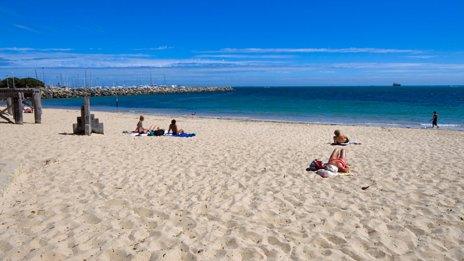Five ways NHS is coping with winter
- Published
Across the UK, plans are being put in place to help the NHS cope with winter pressures.
Health is devolved, but extra money has been set aside by ministers in England, Wales, Northern Ireland and Scotland.
It is being spent on hospitals and also in the community in the hope that some visits to accident and emergency can be prevented.
Below is a look at just some of the things that are happening.

Extra staff

The most obvious step is to ensure there are more doctors and nurses in emergency departments.
In England, the government says the £700m of extra winter money is paying for the equivalent of 1,000 extra doctors and 2,000 nurses.
This does not mean new staff are being appointed. Instead, existing staff are encouraged to work overtime - or staff are diverted from elsewhere in the hospital to A&E. Agency staff are also likely to be taken on.

Working with care homes
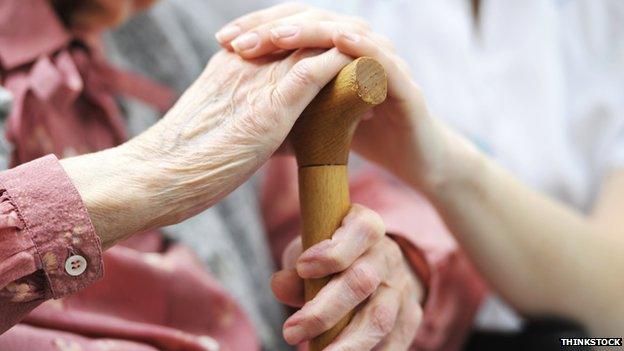
Care homes are a major source of admissions because of the frail nature of their residents. The issue has prompted some hospitals to start working more closely with care homes.
Nurses and doctors from Airedale Hospital in West Yorkshire have set up video links with local care homes.
This allows consultations to take place with residents on everything from cuts and bumps to diabetes management.

Putting GPs in A&Es
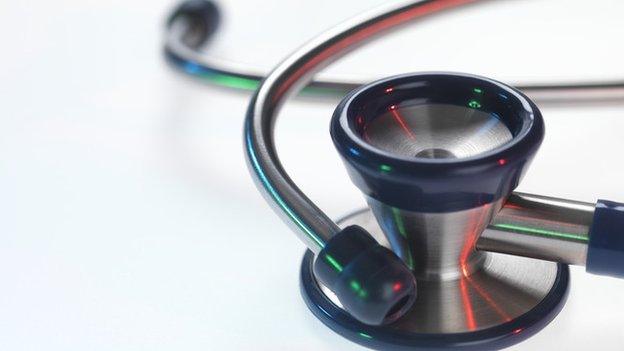
Research suggests a quarter of visits to A&E are unnecessary. Some hospitals have responded by placing GPs in A&E units to see to those patients who do not need emergency care.
In Merseyside, nearly £1m has been set aside to locate GPs at the Royal Liverpool Hospital and Alder Hey Hospital.
The doctors will be mainly focused on weekends when community GP surgeries are closed. NHS bosses say it is a "pragmatic way" of dealing with demands.

Helping manage ambulance queues
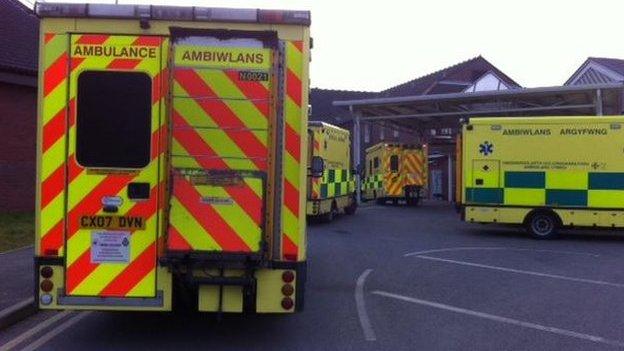
Paramedics are meant to hand over patients to staff within 15 minutes of arriving at an A&E. But during busy periods this can take much longer.
Some hospitals are spending money on appointing Halos - hospital ambulance liaison officers. Their job is to liaise with crews and A&E staff before delays escalate.
Some of the extra money earmarked for winter in Northern Ireland is being spent on these posts, while the North East Ambulance Service in England has taken on three to manage queues at local hospitals.

Recruiting the giant yellow men
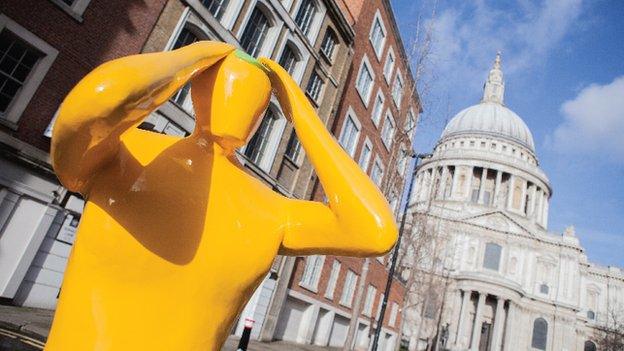
Launched last year, the yellow man campaign was aimed at encouraging people to use alternatives to A&E.
The 7ft statues have ailments such as sore throats, upset tummies and coughs and colds that do not need to be treated at A&E.
The statues - and poster versions - give people information on where else they can go for help.
The south London borough of Lambeth is one of the areas that is repeating the campaign with bosses there saying it proved a good way of raising awareness about the need to use only A&E when necessary.
- Published28 November 2014
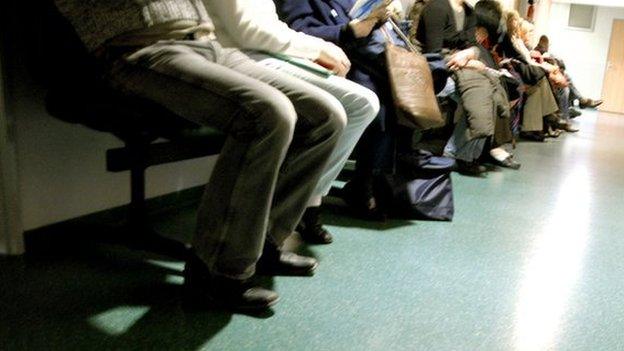
- Published14 November 2014
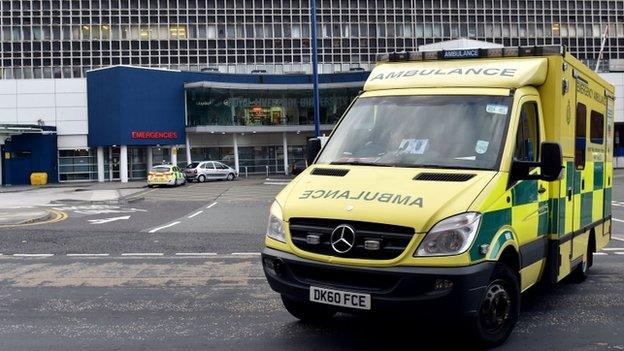
- Published14 November 2014
- Published21 October 2014

- Published18 June 2014
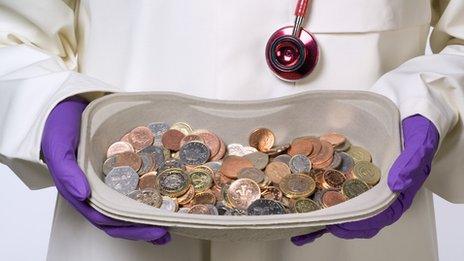
- Published17 March 2014
